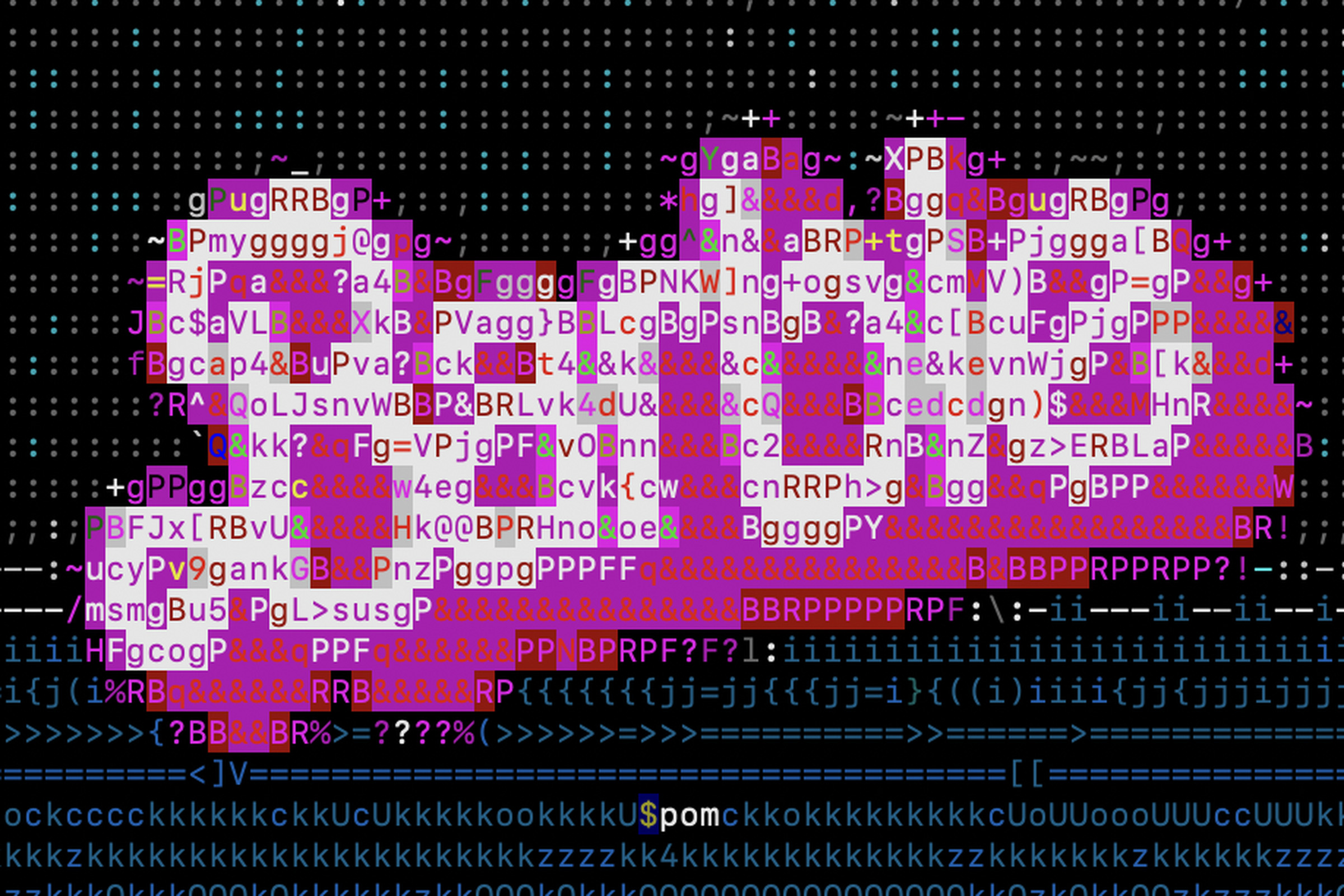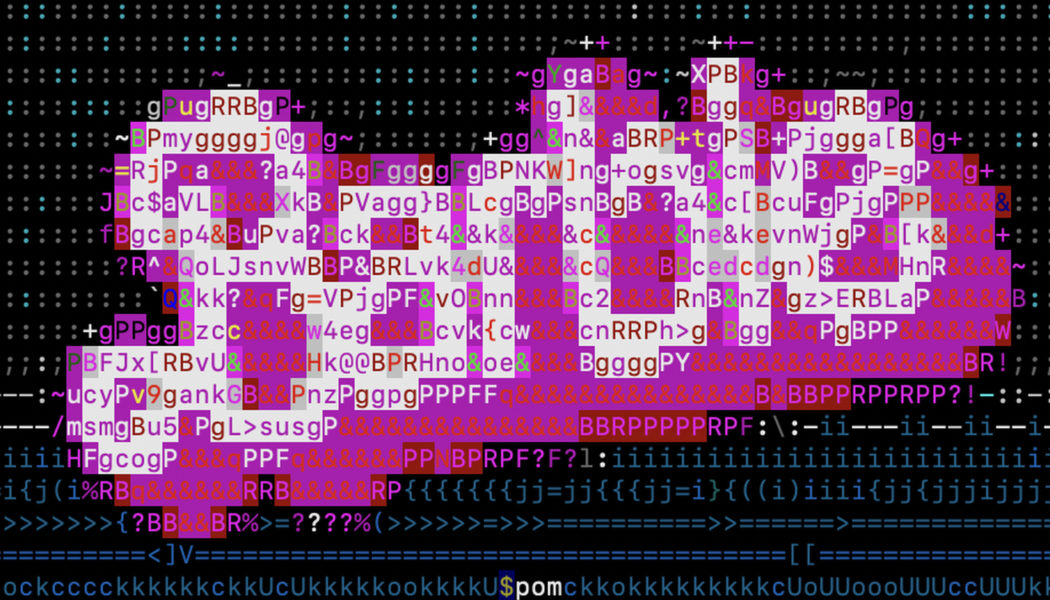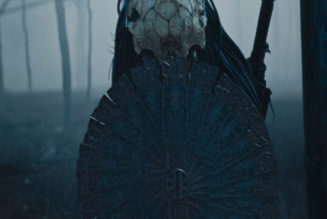MSCHF’s latest venture will broadcast an ASCII version of a new full-length movie every day.
Share this story
See our ethics statement.

The art collective MSCHF is stirring up some trouble on the internet again. For its latest project, ASCII Theater, the group will broadcast a popular new film daily in ASCII format that anyone can watch for free. Just paste the command on your Mac or PC’s terminal, and you can watch films like Barbie exactly as, well, virtually no one has intended.
ASCII art films are nothing new and date back to the early days of the internet. They are made by converting a film, frame by frame, into lines of text characters. Instead of pixels, you’ll see text. One of the most famous examples is the ASCII art version of the original 1977 Star Wars movie, which was completed by New Zealand-based programmer Simon Jansen in 1997 and is still available online. You can also find clips of ASCII films such as The Matrix scattered throughout YouTube.
But full-length ASCII films are rare, and MSCHF’s ASCII Theater promises to stream a new title every day. Following Barbie, the theater will screen an ASCII version of the 2018 horror film Hereditary. A look at the site’s trailer reveals ASCII versions of multiple popular films, including Shrek, Pulp Fiction, The Shining, The Lion King, Star Wars, and others.
MSCHF’s director of marketing Matt Steiner told The Verge that the collective plans to keep the ASCII Theater live “until it gets shut down.” As for the legality of such a venture, Steiner seemed unsure of that himself: “maybe? idk?” admitted Steiner in an email when contacted by The Verge earlier this month.
The legal murkiness around the ASCII Theater is part of the lure for MSCHF. The internet collective has been served cease-and-desist letters by multiple companies and even sued by the likes of Vans and Nike for having too much fun with copyright law.
“Copyright has always been conceptually productive for us. It’s one of the most personally-impacting areas of legal grey area. It’s also a place where people experience subverting restrictive systems in casual life,” wrote Steiner in an email on Monday afternoon.
Productive or not, the ASCII Theater is likely in violation of copyright law. “This latest project would appear to violate a copyright owner’s derivative works right, which gives a copyright owner the right to prevent unauthorized adaptations of a copyrighted work like a film,” Xiyin Tang, assistant professor of law at UCLA, wrote to The Verge.
But Tang isn’t convinced studios will go through the trouble of suing. The actual damages done to each film studio will be “tiny,” since MSCHF isn’t charging viewers and is only broadcasting each film for 24 hours. There’s also a (very slim) chance that MSCHF could successfully argue the ASCII films fall under fair use, according to Tang.
Under the Copyright Act, if the art collective loses in court, the copyright owner may be entitled to statutory damages — a maximum of $150,000. “Given that the going rate for hiring a firm and bringing a lawsuit will likely exceed that amount, it’s unclear what monetary benefit will accrue to a studio for suing, especially given the limited run and exposure (24 hours) each film will have,” noted Tang.









